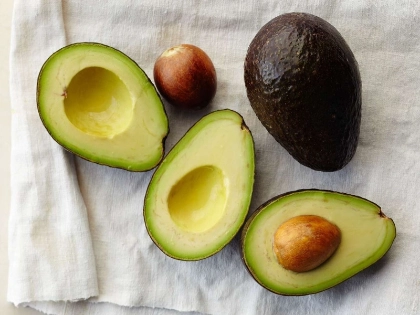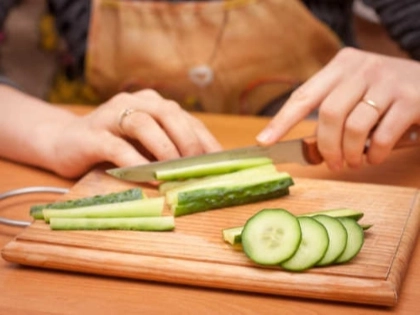Is Carrot Good For Uric Acid?
Antioxidants, fiber, vitamin A, and numerous other nutrients are abundant in carrots. They also include a lot of vitamin C, which breaks down uric acid and pushes it out of the body through urine to help lower high uric acid levels. In just a few days, high uric acid levels can be naturally reduced by consuming a cup of carrot juice twice a day. This beverage is also abundant in anti-inflammatory qualities that provide gout pain relief.
A lot of fiber
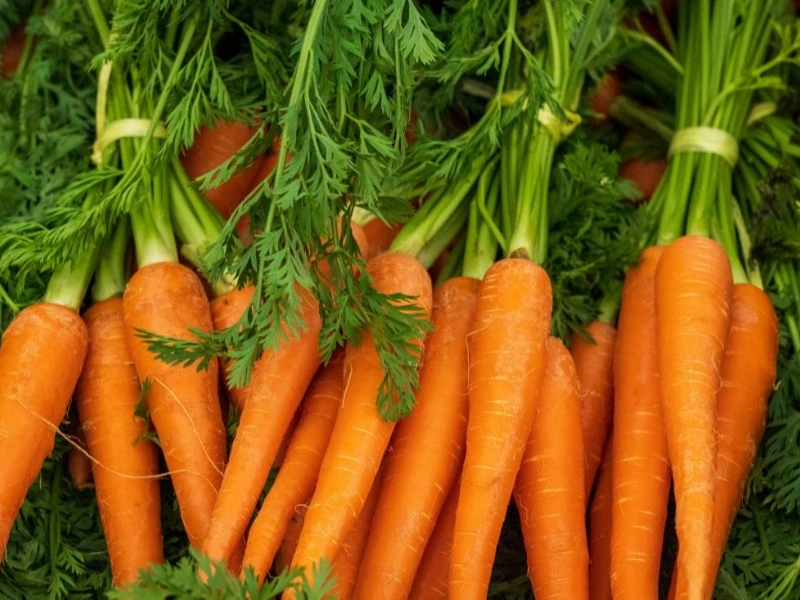
Antioxidants abundant
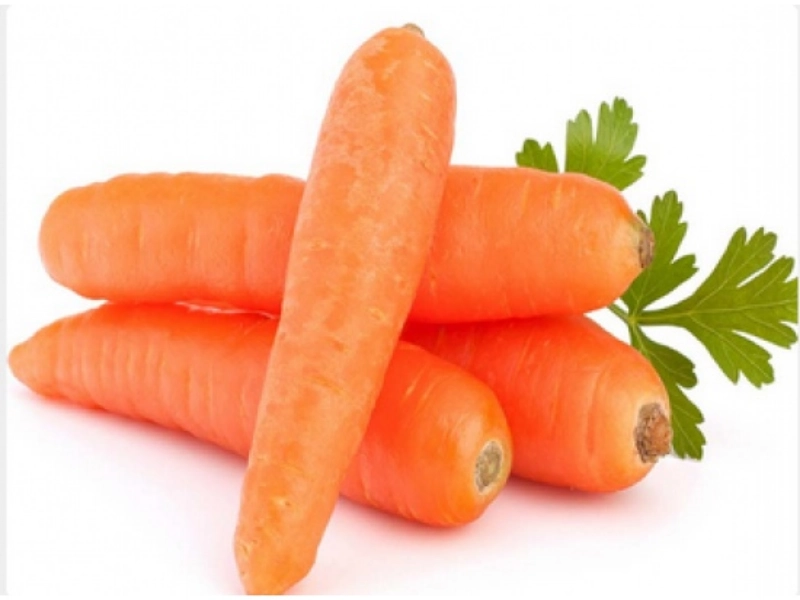 Carrots include antioxidants that prevent your body from accumulating uric acid. By absorbing it and eliminating it from the bloodstream, they accomplish this. They also support the regulation of the uric acid-producing enzymes. To reduce your uric acid levels, you should consume a variety of foods. Additionally, you should eat a variety of high-fiber, low-purine foods and engage in frequent exercise.
Carotenoids and anthocyanins are the two main categories of antioxidants found in carrots. Their orange and yellow coloring comes from the former, while their crimson and purple coloring comes from the latter. They have a reputation for lowering inflammation and enhancing heart health. They increase bile production as well, which aids in the body's fat digestion.
A glass of carrot-lemon juice that has just been squeezed will help lower high uric acid levels. This is due to the fact that it contains a lot of vitamin C, a nutrient that is crucial for enhancing immunity and decreasing uric acid. Natural anti-inflammatory vitamin C also aids in lowering gout symptoms like soreness, edema, and joint discomfort.
Carrots include antioxidants that prevent your body from accumulating uric acid. By absorbing it and eliminating it from the bloodstream, they accomplish this. They also support the regulation of the uric acid-producing enzymes. To reduce your uric acid levels, you should consume a variety of foods. Additionally, you should eat a variety of high-fiber, low-purine foods and engage in frequent exercise.
Carotenoids and anthocyanins are the two main categories of antioxidants found in carrots. Their orange and yellow coloring comes from the former, while their crimson and purple coloring comes from the latter. They have a reputation for lowering inflammation and enhancing heart health. They increase bile production as well, which aids in the body's fat digestion.
A glass of carrot-lemon juice that has just been squeezed will help lower high uric acid levels. This is due to the fact that it contains a lot of vitamin C, a nutrient that is crucial for enhancing immunity and decreasing uric acid. Natural anti-inflammatory vitamin C also aids in lowering gout symptoms like soreness, edema, and joint discomfort.
Low in phosphorus
 Crystals of uric acid can develop in the joints, causing discomfort, stiffness, and swelling. Genetics, food, and specific medical disorders are all associated with high uric acid levels. Reduced uric acid levels may result from a reduced purine diet.
Purines are scarce in carrots. Additionally, they are a good source of vitamin C, which lowers uric acid. Awla, guava, sweet lime, kiwi, oranges, and green leafy vegetables are foods high in vitamin C.
Foods high in purine should be avoided by those who have gout. Gout attacks may be brought on by certain meals. Dried fruits (including raisins) and fruit juices, sweetened soft drinks, and processed foods are a few typical high-purine foods. Some foods, especially red meat (including hog and lamb) and organ meats (liver, tripe, sweetbreads, and brains), Because drinking alcohol stops your kidneys from removing purines, it can also raise your blood levels of uric acid. As a result, you should also limit your alcohol consumption.
Crystals of uric acid can develop in the joints, causing discomfort, stiffness, and swelling. Genetics, food, and specific medical disorders are all associated with high uric acid levels. Reduced uric acid levels may result from a reduced purine diet.
Purines are scarce in carrots. Additionally, they are a good source of vitamin C, which lowers uric acid. Awla, guava, sweet lime, kiwi, oranges, and green leafy vegetables are foods high in vitamin C.
Foods high in purine should be avoided by those who have gout. Gout attacks may be brought on by certain meals. Dried fruits (including raisins) and fruit juices, sweetened soft drinks, and processed foods are a few typical high-purine foods. Some foods, especially red meat (including hog and lamb) and organ meats (liver, tripe, sweetbreads, and brains), Because drinking alcohol stops your kidneys from removing purines, it can also raise your blood levels of uric acid. As a result, you should also limit your alcohol consumption.
Zero calories
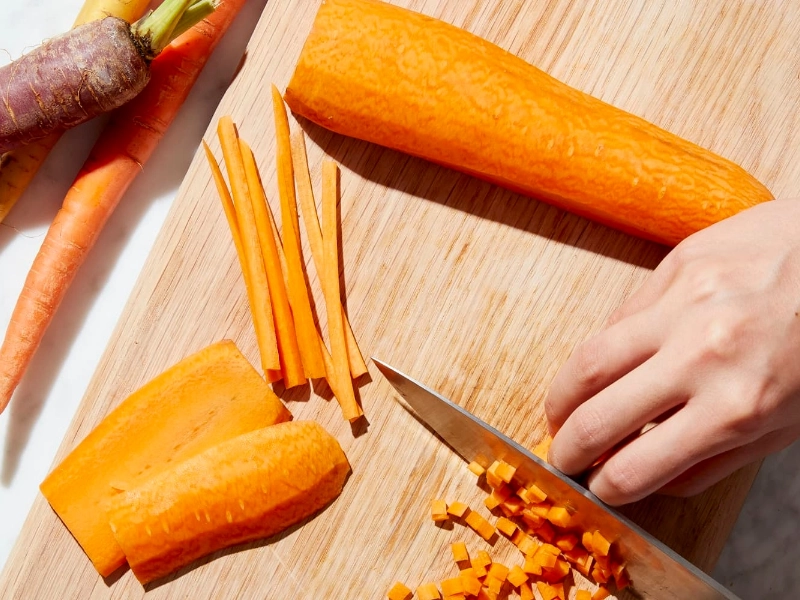 Beta-carotene, potassium, vitamin C, antioxidants, dietary fiber, and vitamin K1 are all abundant in carrots. Minerals like Ca, P, and Fe are abundant in it as well.
When purines are broken down by the body, uric acid is produced, and if there is a purine overload or a purine excretion issue, uric acid levels in the blood may rise. Gout, a painful condition marked by joint deposition of uric acid, can result.
Purine-free foods can lower uric acid levels and prevent gout. As a result of their high nutritional value and low purine content, carrots are one of these foods. They can also be mixed with other purine-rich foods to make wholesome meals. Foods high in vitamin C can also reduce uric acid levels. Awl, orange, guava, kiwi, and tomato are all excellent sources of vitamin C. Another excellent choice is cocoa beans because they contain theobromine, which lowers blood uric acid levels.
Beta-carotene, potassium, vitamin C, antioxidants, dietary fiber, and vitamin K1 are all abundant in carrots. Minerals like Ca, P, and Fe are abundant in it as well.
When purines are broken down by the body, uric acid is produced, and if there is a purine overload or a purine excretion issue, uric acid levels in the blood may rise. Gout, a painful condition marked by joint deposition of uric acid, can result.
Purine-free foods can lower uric acid levels and prevent gout. As a result of their high nutritional value and low purine content, carrots are one of these foods. They can also be mixed with other purine-rich foods to make wholesome meals. Foods high in vitamin C can also reduce uric acid levels. Awl, orange, guava, kiwi, and tomato are all excellent sources of vitamin C. Another excellent choice is cocoa beans because they contain theobromine, which lowers blood uric acid levels.




